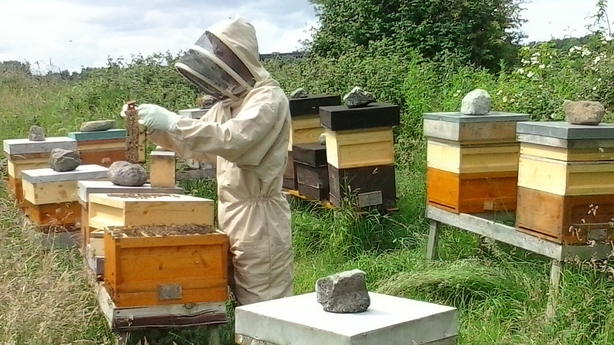Scientists at NUI Galway, who are trying to establish whether indigenous Irish honey bees still exist in the wild or not, have appealed to the public for help.
The researchers are asking people to watch out for native honey bees around the country and let them know if they spot any.
In particular they are keen to find feral or unmanaged hives, which those behind the study think bee-keepers may already know about.
The experts say old abandoned houses and castles, woodlands, houses and outbuildings are possible places where wild honey bees could be found.
Already over 20 hives have been reported by the public, and a further seven long-term colonies have also been notified to the team.
Honey bees play a vital role in the pollination of crops and flowers, but populations are declining due to pesticides, disease and loss of natural habitat.

At least three bee species have become extinct in Ireland within the last 80 years and it is reported that around one third of Ireland's 98 existing bee species have become endangered.
Scientists think that if they still exist, the native Irish honey bees' gene pool may be used to combat a mite which is destroying hives all around the globe.
To investigate their hypothesis, the research team needs to establish in particular whether wild honey bees can survive in the wild, or whether those in the wild are new colonies from nearby beekeepers, and whether any wild colonies are truly native or just hybrids.
"To test these assumptions, ideally we would like to identify hives that people know have been continually active for periods of more than two-three years", said Professor Grace McCormack, of NUI Galway's Zoology Department, who is leading the project.
If you think you know where there could be a wild hive you can email nuigbeeresearch@gmail.com, call 091-494490 or visit the Bee Genes Facebook page.

